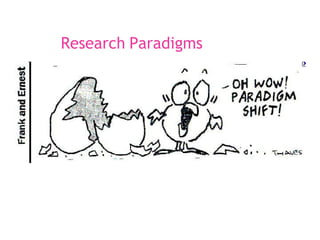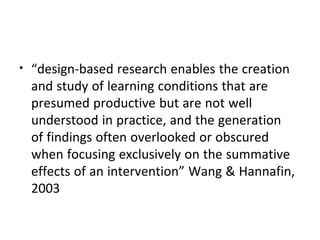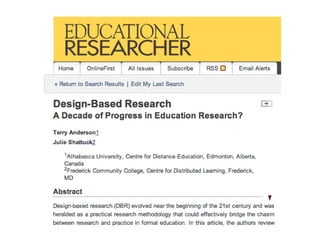This document discusses different research paradigms. It defines paradigm as a framework of beliefs and theories that guide research within a discipline. Three main paradigms are discussed: positivism, constructivism, and critical research.
Positivism uses quantitative methods to test objective theories and discover generalizable laws. Constructivism takes a qualitative approach to understand perspectives from within different contexts. Critical research investigates power relationships and aims to expose and rectify injustices. Each paradigm makes different assumptions about the nature of knowledge and appropriate research methods. The document provides examples of research questions and studies within each paradigm. It also notes debate around which type of research most influences teaching practice.























































